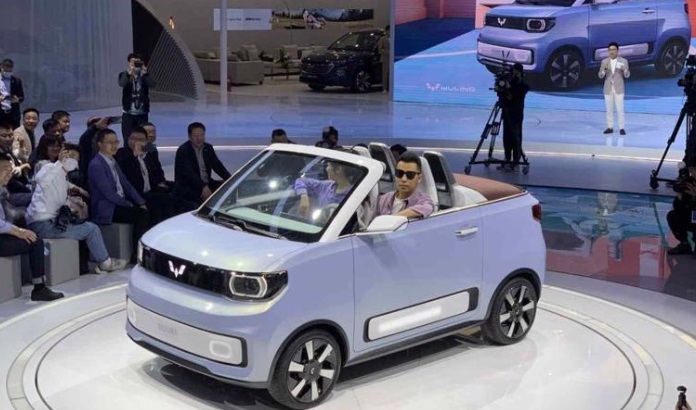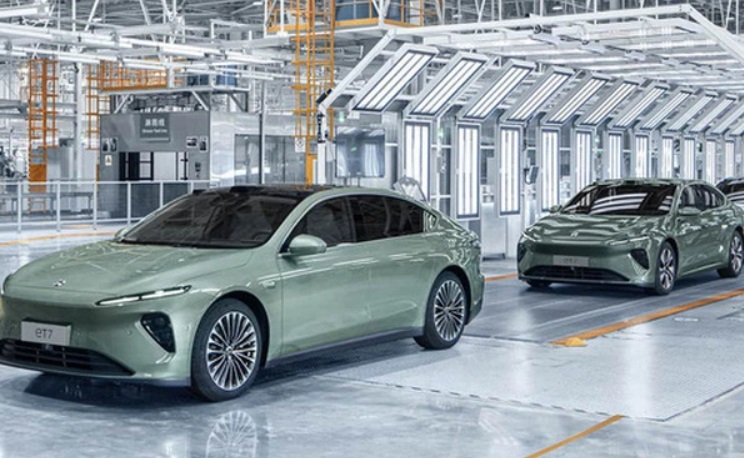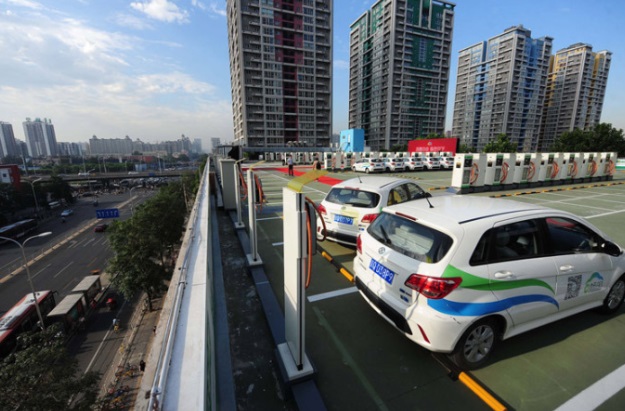Electric cars have gained immense popularity in China.
According to BloombergNEF’s analysis, China has sold over 18 million electric cars since the beginning of 2017, accounting for almost half of the global total and surpassing the United States by four times.
It is projected that by 2026, electric cars will make up 50% of the total new passenger car sales in China.
The rise of electric cars poses a threat to the global oil market.
Robert Brecha, a sustainability specialist and professor at the University of Dayton in Ohio, stated, “If China continues to experience such high growth in electric cars over the next decade, it could significantly disrupt global oil consumption.”
Currently, China stands as the largest importer of crude oil worldwide. With its two decades of enormous consumption growth, crude oil prices have ascended to $100 (equivalent to VND 2.4 million) per barrel. The unforeseen increase in oil prices has even paved the way for the emergence of oil billionaires in the Middle East.
In fact, the transportation sector accounts for nearly half of China’s total oil consumption. Hence, the proliferation of electric cars would lead to reduced demand for fuel derived from crude oil.
If China, as a significant customer, decreases its reliance on oil, countries with strong oil export capabilities such as Russia and Saudi Arabia would most likely face the consequences of plunging oil prices.
Nevertheless, experts also affi’m that it is too premature to forecast the peak in oil demand in general, especially in China. Presently, electric cars have not yet made a substantial impact on oil consumption. To yield an impact, electric cars need to gain more popularity, establish a well-developed network, and have synchronized infrastructure.
Electric cars have become trendy in China.
Electric cars have witnessed an unprecedented surge in popularity throughout China. Gas stations not only provide fuel pumps but also feature a myriad of green charging stations and mobile battery swapping facilities. These charging stations always remain busy with customers.
Despite the considerable waiting time required for a full charge, many people still opt for electric cars due to their ability to save approximately 80% on fuel costs.
As the initial price of electric cars drops, the availability of affordable energy ensures that owning an electric car over its lifespan is now more cost-effective compared to owning a gasoline-powered car.
A vast number of individuals in China have openly expressed that they would never resort to using gasoline cars again as electric cars prove to be both economical and convenient.
China is currently the global leader in terms of having the lowest electricity prices, thanks to widespread utilization of renewable energy sources and affordable coal. China consumes over half of the world’s electricity supply, with coal constituting approximately 60% of its electricity generation.
Do electric cars genuinely contribute to environmental preservation?
A multitude of studies have indicated that the production of electric cars results in greater environmental pollution compared to that of internal combustion engine vehicles. This is primarily attributed to electric cars requiring a greater amount of metals and carbon during battery mining and refining processes. Nevertheless, the emissions generated during operation are capable of offsetting this disparity.
Over the course of 17 years, a Tesla car in the United States can emit less than 55 tons of carbon dioxide, significantly lower than the quantity emitted through the consumption of an equivalent amount of gasoline.
To minimize the environmental impact, companies like GEM Co. are actively researching and developing techniques to chemically recycle batteries, thereby reducing the number of discarded batteries that pollute the environment.
TH (Tuoitrethudo)


































![[CAR REVIEW] Rolls-Royce Spectre: A Symphony of Luxury](https://vnauto.net/wp-content/uploads/2023/10/xehay-rrspectre-30082023-1-150x150.jpg)













